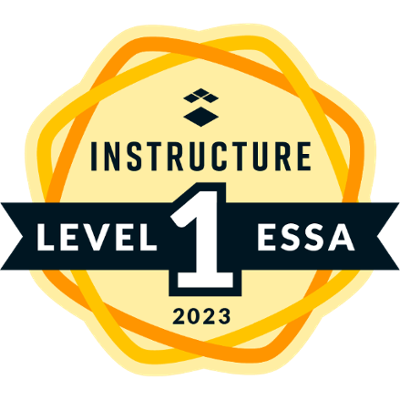Share this
The Power of Proof: Understanding ESSA's Tiers of Evidence
by Connie Warren, M.Ed. on Nov 14, 2023 4:10:42 PM

BookNook is thrilled to have achieved Tier 1 status, indicating that we stand at the forefront of evidence-based interventions. This achievement underscores our commitment to making a measurable difference in student learning with our synchronous online learning platform.

The Every Student Succeeds Act (ESSA) introduced a framework for evaluating the effectiveness of educational programs, practices, and interventions. This framework is known as the ESSA tiers of evidence, and it categorizes evidence into four levels, guiding educators and policymakers in making informed decisions to improve student outcomes. Understanding these tiers is crucial for schools and districts to choose interventions with a proven success track record.
Tier 1: Strong Evidence
The pinnacle of the evidence tiers, Tier 1, is reserved for interventions supported by one or more well-designed and well-implemented randomized control trials (RCTs). This means the intervention has been rigorously tested and demonstrated a statistically significant effect on improving student outcomes. Interventions that reach this tier provide the strongest assurance of effectiveness.
Tier 2: Moderate Evidence
Tier 2 requires interventions to have evidence from well-designed and well-implemented quasi-experimental designs (QEDs). These are studies that, while not randomized, still provide a reliable measure of an intervention's effectiveness. To be considered moderate evidence, these studies must demonstrate a statistically significant effect on improving student outcomes.
Tier 3: Promising Evidence
This tier includes interventions with evidence from well-designed and well-implemented correlational studies with statistical controls for selection bias. In other words, these interventions show a positive effect on student outcomes. Still, the evidence is not as strong as Tiers 1 or 2 because it is not from an experiment or quasi-experiment.
Tier 4: Demonstrates a Rationale
Tier 4 is for interventions supported by a rationale based on high-quality research findings or positive evaluation that such interventions will likely improve student outcomes. However, these interventions might not yet have the empirical evidence that meets the requirements of the higher tiers.
Implications for Schools and Districts
The implications of the ESSA tiers of evidence are profound. They shape how districts allocate resources and select interventions. Schools are encouraged to use interventions with higher-tier evidence, as these have been more effective. This approach ensures that educational practices are grounded in research and likely produce the best student outcomes.
Additionally, the ESSA evidence tiers serve as a roadmap for continuous improvement. As schools implement interventions and collect data on their effectiveness, they contribute to the body of evidence, potentially elevating an intervention to a higher tier.
Understanding the ESSA evidence tiers highlights the importance of selecting evidence-based interventions. Moreover, it provides assurance that programs such as BookNook's are not just based on well-intentioned theories but are grounded in practices proven to be effective.
For Parents and Families
The Every Student Succeeds Act (ESSA) tiers of evidence provide a valuable framework for parents and caregivers who are invested in their children's educational success. The significance and importance of these tiers for parents and caregivers are manifold:
- Assurance of Quality: The ESSA evidence tiers help parents and caregivers understand the quality of educational programs and interventions. Programs that meet higher tiers of evidence have been rigorously evaluated and shown to be effective. This means that when parents and caregivers choose a program like BookNook, which has achieved Tier 1 status, they can be confident that it has a strong track record of success.
- Advocacy: Knowledge of the tiers can help parents and caregivers advocate for effective interventions in their child’s school. They can push for programs with higher-tier evidence to be implemented, ensuring their children and peers get the best educational support.
- Encouraging Engagement: When parents know that their child’s school uses evidence-based interventions, they might be more likely to engage with the school and their child’s education. Knowing that a school invests in high-quality programs can motivate parents to become more involved.
- Supporting At-Home Learning: Parents and caregivers can extend evidence-based learning outside of school by choosing programs and practices for at-home learning that align with ESSA evidence tiers. This can reinforce the learning in school and provide additional support where needed.
The ESSA tiers of evidence are more than just a regulatory requirement; they are a guide for educational excellence. As we strive to enhance student learning, platforms like BookNook play a critical role in delivering research-driven instruction that meets the highest standard of evidence, helping to ensure that every student has the opportunity to succeed.
Share this
- January 2026 (3)
- October 2025 (2)
- September 2025 (1)
- August 2025 (1)
- July 2025 (1)
- June 2025 (1)
- April 2025 (2)
- March 2025 (3)
- January 2025 (3)
- December 2024 (1)
- November 2024 (1)
- October 2024 (4)
- September 2024 (2)
- August 2024 (3)
- July 2024 (2)
- June 2024 (4)
- May 2024 (3)
- April 2024 (4)
- March 2024 (4)
- February 2024 (3)
- January 2024 (5)
- December 2023 (3)
- November 2023 (5)
- October 2023 (5)
- September 2023 (5)
- August 2023 (4)
- July 2023 (5)
- June 2023 (8)
- May 2023 (2)
- April 2023 (3)
- March 2023 (4)
- February 2023 (1)
- January 2023 (1)
- November 2022 (1)
- October 2022 (1)
- September 2022 (1)
- August 2022 (1)
- June 2022 (1)
- April 2021 (1)
- March 2021 (1)
- October 2020 (1)
- December 2019 (1)
- November 2019 (1)
- October 2019 (1)
- July 2019 (1)
- January 2019 (1)
- December 2018 (1)
- October 2018 (1)
- August 2018 (1)
- May 2018 (2)
- April 2018 (1)
- March 2018 (2)
- February 2018 (2)